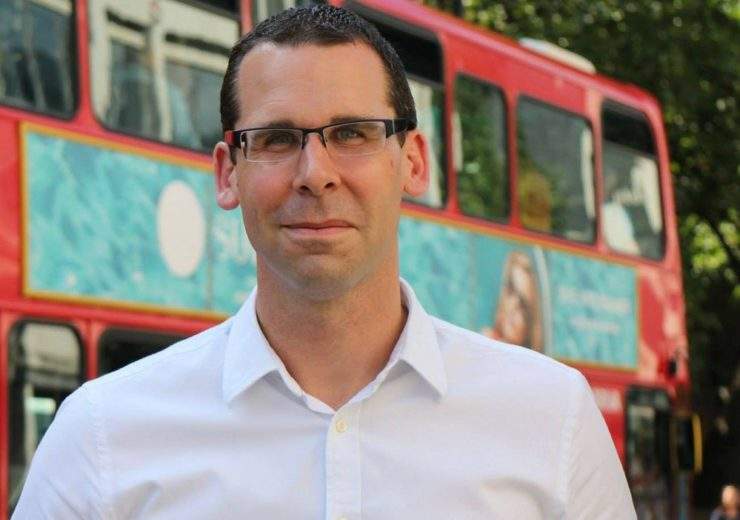David Burnand, director of enterprise marketing for EMEA at Adobe, believes AI will enable businesses to use data to personalise their conversations with their customers, while the job market will only be enhanced. Felix Todd speaks with the Adobe executive to learn more

Director of enterprise marketing EMEA at Adobe David Burnand
Data is irreversibly changing the interaction between consumers and the companies they buy from, and one Adobe executive believes this trend will only grow.
David Burnand, director of enterprise marketing for EMEA at the US software giant, views the increasing sophistication of AI and its ability to enable personalised marketing as something that can no longer be ignored.
As he sees it, the businesses that don’t embrace technology are the ones that will fall behind, while those that do are in a position to realise the next phase of marketing.
Personalisation – the process by which marketers use customer data, such as spending habits and lifestyle choices, to engage them in more bespoke conversations – is that next phase.
At the Adobe Experience Forum 2018 in London, Compelo spoke with David and got his insight on the concept of personalisation, as well as how AI and data might affect the world outside marketing.
Adobe executive on artificial intelligence: Will AI cost jobs?
I don’t think so, no. Understandably, there’s a lot of concern over this, but really AI looks set to prove an enhancement of the job market, not a detriment.
It’s going to be a huge disruption, that’s for sure, so really it comes down to how well businesses are going to integrate into their employment processes.
The ones that are taking a more traditional approach – not just to AI, but to the digital age in general – are the ones that might see more of a hit.
If done right, though, employees will be able to use AI to free them of time-consuming, mundane work, and it will enable them to up-skill and focus on more challenging tasks.
Adobe executive on marketing agencies: Are they a thing of the past?
They aren’t a thing of the past, by any stretch, but I do think the role they have to play is changing a lot and will only continue to do so.
We have taken a lot of our marketing in-house over the past few years – it’s not because agencies do a bad job, though, it’s really about data.

We have access to huge data sets that we can use to really make our marketing personal and relevant to the customer – we aren’t comfortable sharing that data, which means agencies just don’t have this tool at their disposal.
What they do have is phenomenal creativity and strategic thinkers – there’s a lot of talent there – so really the question as far as their relationship with big businesses is concerned is: How can we fuse that creativity with the deep tech capabilities of our clients?
Adobe executive on personalisation: When did it become so important?
I think it’s always been a winning marketing strategy, but only now is it really becoming a reality.
The promise has always been there since the days of CRM, but you just can’t compare that with what we’re seeing now, really I think there’s been a ten-year lag between the promise of personalisation and its actual delivery.
Marketers are able to make their products so relevant to the customer, because of things like data and AI, in a way we’ve really never seen before.
Now there’s no question that personalisation is the key for marketers, you’d be hard-pressed to find one that disagrees.

Adobe executive on AI in different sectors: Which stand to gain the most?
I think the sectors that already have digital processes as part of their DNA are really going to take things like AI and run with them.
Those in the media and marketing are already using data in really powerful ways, that’s only going to continue as far as I’m concerned.
The big one is healthcare – as a sector I don’t think it has gone through enough digital transformation, especially when you compare it with what others are doing.
But it’s difficult, legislation moves very slow in that area – some of the big names are doing a good job but overall more is needed to keep pace.
Adobe executive on GDPR: Has it affected the trajectory of data?
There’s no doubt GDPR is a huge game-changer – it’s interesting to see the different approaches to the increase in data use by companies and continents around the world – it’s really different in the US and China.
As far as we’re concerned, GDPR means a lot of work but in the long run I really do think it will be a good thing for us and our customers.
It’s been part of a wave that has brought data and the way companies use them into the public eye a lot more.
Just a few years ago, people really weren’t aware of how much information companies had about them, but now they do, so this has created a new relationship.
The onus is on the company to be more responsible with their customer’s data, and to use it in a way that benefits the people who use their products and services.



